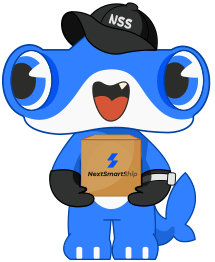Amazon is undoubtedly an ideal place for your e-commerce business. While looking at fulfillment measures, FBA(fulfilled by Amazon) differs from FBM (fulfilled by merchants).
FBA means Amazon would do the order fulfillment to you, including storage, packaging, and shipping. All you need to do is to hand over your goods to Amazon following their requirements. With FBA, every time an item is sold, Amazon charges approximate 15% of the value of goods and extra fee for storage fee, pick & pack. Although it offers worldwide shipping, it is costly for many start-ups that would eat up your margins. What’s more, not everyone is eligible to deliver goods with Amazon warehouses. IPI (inventory performance index) score, to measure the performance of historical sales, inventory levels, and costs, sets a bar for thousands of sellers. In January 2020, the IPI threshold is to be leveraged to 400 (previously 350). If your goods are having lower turnaround rate, you are subjected to limited storage and storage overage fees.

While with FBM, orders could be fulfilled by sellers themselves or by third-party fulfillment companies, merchandisers could maintain more control over their business while to some degree, involuntarily loses consumers from “Prime member” for Prime member would prefer FBA for shipping benefits. However, it is ineligible that prime member has a higher market share in Amazon. In early 2019, the number of Amazon Prime has reached a milestone in the United States, surpassing 100 million subscribers.
Is there any chance that would combine these 2 ways so that you would not lose consumers from “Prime member” or miss any forms of growth potential for your branded products? Yes, that’s the trending fulfillment method – Seller Fulfilled Prime (SFP).
SFP program is launched in 2015 by Amazon, allowing qualified sellers to display the Prime logo via their order fulfillment services or services by third-party logistics providers. However, it’s kind of harsh for most sellers as per Amazon’s requirements on the qualifications of the sellers.
On-time 2-day shipping of at least 99% for Premium Shipping orders
A cancellation rate of less than 0.5% for Premium Shipping orders
And there are 5 to 90 days for the trial period to satisfies these requirements on a minimum of 200 Amazon prime trial orders and become eligible for SFP. If there are any delays in order delivery, any complaints in services, your business would go astray. It seems that customers are at the heart of SFP. Elaborated packaging, expedited shipping speed, and simplified return policies would accelerate the trial period. Considering that building fulfillment centers would cost you millions, resorting to an order fulfillment partner is a wise choice.
Advantages of SFP (with fulfillment partners):
sell seasonal products that have a low turnaround rate to avoid high storage fees by Amazon. Some order fulfillment companies, like Nextsmartship, offer free warehousing
Keep inventory management and order management in one system
Feasible to build your brand and implement branding strategies (customized packaging,etc.)
Avoid additional fees for FBA with big and heavy products.
Can transport oversized products, while FBA could only transport 18’’ by 8’’ or less
Can transport overweight products over 20 lbs, while FBA could only transport 20 lbs or less
Provide enough manpower and storage space to fulfill efficiently
Though SFP sounds perfect in many ways, you could fulfill your items in way of both FBA and SFP to facilitate the shipping together. For instance, in early December in 2019, Amazon has stated that “we are off to a record-breaking start” due to the peak shopping season and the winter storms. Hence, it has failed to keep its promise “2-day shipping” to its Prime Member. SFP works right now.
With fulfillment partners, they could hand the items to your consumers in faster speed globally. What you can benefits most from the SFP is you can do the order fulfillment in multiple e-commerce platforms, not Amazon only, with 1 fulfillment partner and 1 shipping system for your scaling business.



